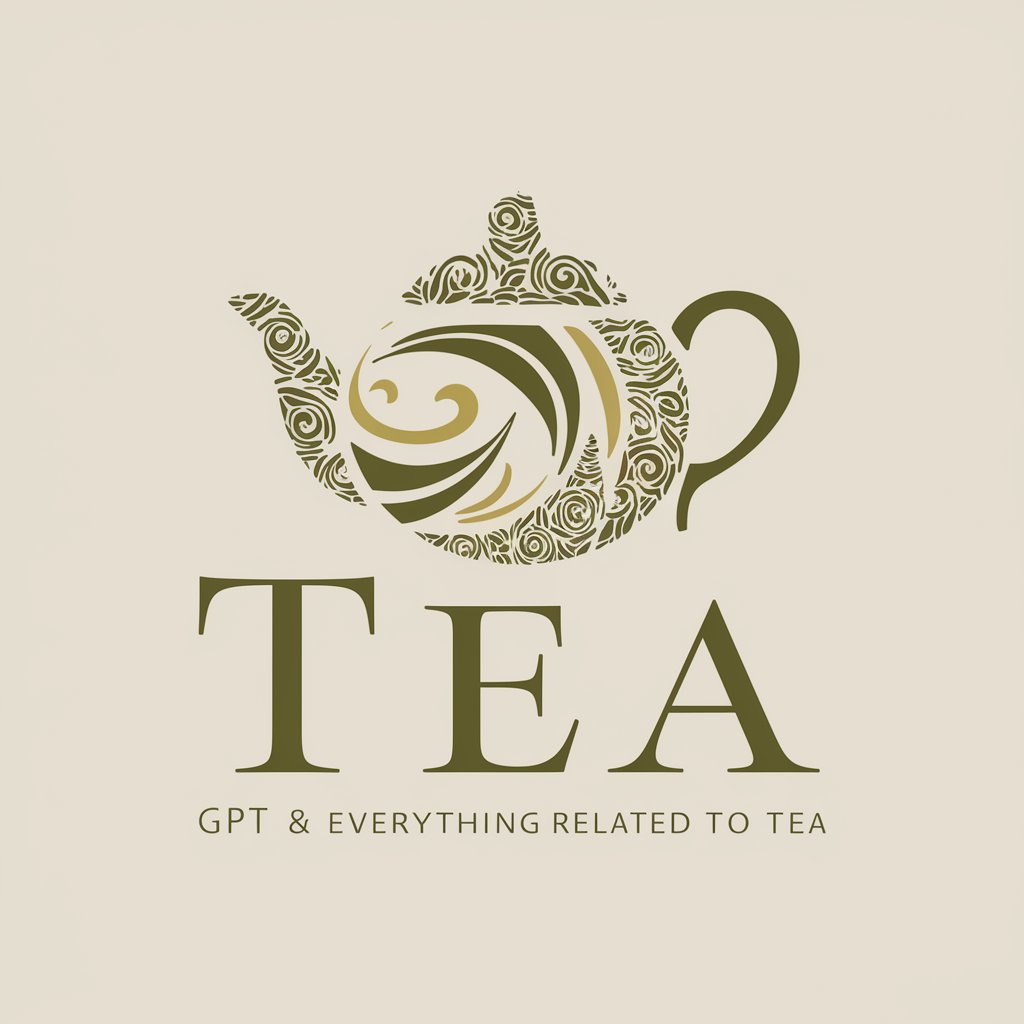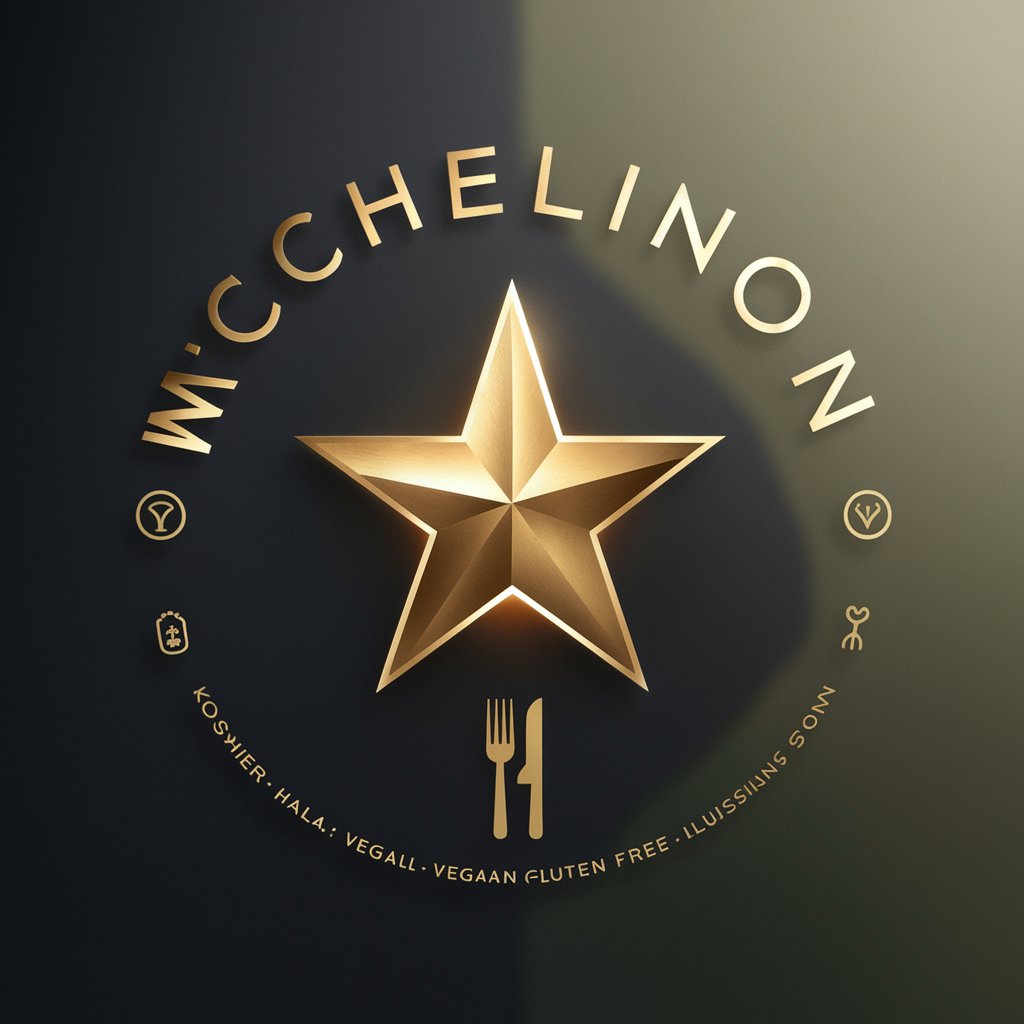
Tea - Tea Insight and Guidance

Hello! Let's explore the world of tea together.
Explore the World of Tea, Powered by AI
What are the health benefits of different types of tea?
Can you explain the best brewing techniques for oolong tea?
Tell me about the tea culture in Japan.
What are the historical origins of chai tea?
Get Embed Code
Introduction to Tea
Tea, as a specialized GPT, is designed to be an exhaustive resource on all things related to the world of tea. This encompasses a broad spectrum of topics, including but not limited to the various types of tea (green, black, white, oolong, pu-erh, herbal), brewing techniques, tea cultures globally, health benefits associated with tea consumption, and historical trivia. The purpose behind Tea's design is to provide users with in-depth, accurate, and engaging content about tea, catering to both novices and connoisseurs alike. For example, a user curious about the differences between Japanese and Chinese green teas can receive detailed comparisons covering aspects like cultivation methods, flavor profiles, brewing techniques, and cultural significance. Similarly, someone interested in the health benefits of different teas might find comprehensive insights into the latest research findings, including antioxidants in green tea, the relaxing properties of herbal teas, or the weight management potential of oolong tea. Powered by ChatGPT-4o。

Main Functions of Tea
Educational Insights
Example
Providing detailed explanations of different tea types, including their origins, processing methods, and flavor notes.
Scenario
A tea enthusiast exploring the nuances of rare oolong teas from Taiwan will find extensive information on the varietals, oxidation levels, and ideal brewing conditions to enhance their tasting experience.
Brewing Techniques
Example
Offering step-by-step guides on how to properly brew various types of tea, considering factors such as water temperature, brewing time, and tea-to-water ratios.
Scenario
A beginner looking to brew their first loose-leaf green tea can access precise brewing instructions, ensuring a perfect cup that retains the tea's delicate flavors and health benefits.
Cultural Histories
Example
Exploring the rich cultural traditions of tea across different countries, including tea ceremonies, historical uses, and the role of tea in social and religious contexts.
Scenario
A student researching the cultural significance of the Japanese tea ceremony will receive a detailed account of its origins, rituals, and philosophical underpinnings, enhancing their understanding of Japanese culture.
Health Benefits
Example
Delving into the health implications of regular tea consumption, supported by scientific research and studies.
Scenario
Someone interested in natural health remedies might seek information on how chamomile tea can aid in sleep and relaxation, including dosage recommendations and potential health impacts.
Ideal Users of Tea Services
Tea Enthusiasts
Individuals with a passion for tea, ranging from those just beginning their tea journey to seasoned connoisseurs. They benefit from Tea's services by deepening their knowledge, discovering new teas, and refining their brewing techniques.
Health-Conscious Individuals
People interested in the health benefits associated with tea, including weight management, mental clarity, and disease prevention. Tea provides them with evidence-based information on how different teas can contribute to their health goals.
Students and Researchers
Those engaged in academic or personal research on topics related to tea, its cultural significance, or its historical impact. Tea offers detailed, reliable sources that can support their research needs.
Hospitality Professionals
Professionals in the hospitality industry, such as tea sommeliers, baristas, and restaurant owners, looking to enhance their tea offerings and service quality. Tea's insights can help them curate diverse and appealing tea menus tailored to their clientele.

How to Use Tea: A Guide
Start Your Journey
Begin by visiting yeschat.ai to access a free trial readily available without any login requirement or need for a ChatGPT Plus subscription.
Explore Tea Types
Dive into the vast world of tea by exploring different types, such as green, black, oolong, white, and herbal teas. Understand their unique flavors, origins, and health benefits.
Master Brewing Techniques
Learn about various brewing techniques that enhance the taste and aroma of your tea. Understand the importance of water temperature, steeping time, and tea-to-water ratios.
Discover Tea Cultures
Explore the rich and diverse tea cultures around the world. Gain insights into traditional ceremonies, rituals, and the social significance of tea in different societies.
Enjoy Responsibly
Savor your tea while understanding its health benefits and potential effects. Enjoy responsibly by considering caffeine content and any dietary restrictions.
Try other advanced and practical GPTs
PINN & XAI Expert
Demystifying AI Decisions

Garden Vegetables
Cultivate Your Garden with AI

伴读郎
Unlock insights with AI-powered analysis

Zeduler
Optimize your time with AI-driven scheduling

OptiPrompt
Enhance AI Interactions with Precision

混沌助手
Empowering creativity and efficiency with AI

Topology
Exploring Mathematics with AI-Powered Topology

Romantic Wordsmith Enhanced
Crafting Love Stories with AI

MichelinON 🧪
Tailored Michelin Dining at Your Fingertips

Moving
Streamlining Moves with AI-Powered Guidance

Rings
Explore the World of Rings with AI

Socket Mobile Tech Guru
Streamlining Development with AI-Powered SDK Support

Frequently Asked Questions About Tea
What are the health benefits of green tea?
Green tea is rich in antioxidants, which can reduce the risk of certain chronic diseases, improve brain function, aid in weight loss, and enhance overall health.
How do I choose the right tea for me?
Consider your taste preferences, desired health benefits, and caffeine sensitivity. Experiment with different types and flavors to find your perfect match.
What is the best way to store tea?
Store tea in a cool, dark place in an airtight container. Keep it away from strong odors and moisture to preserve its flavor and freshness.
Can tea be part of a daily health regimen?
Absolutely. Tea can be a hydrating, low-calorie beverage option with various health benefits. Incorporate it into your daily routine in moderation.
What makes oolong tea unique?
Oolong tea is partially fermented, offering a taste and aroma that falls between green and black tea. Its unique processing results in a complex flavor profile and various health benefits.